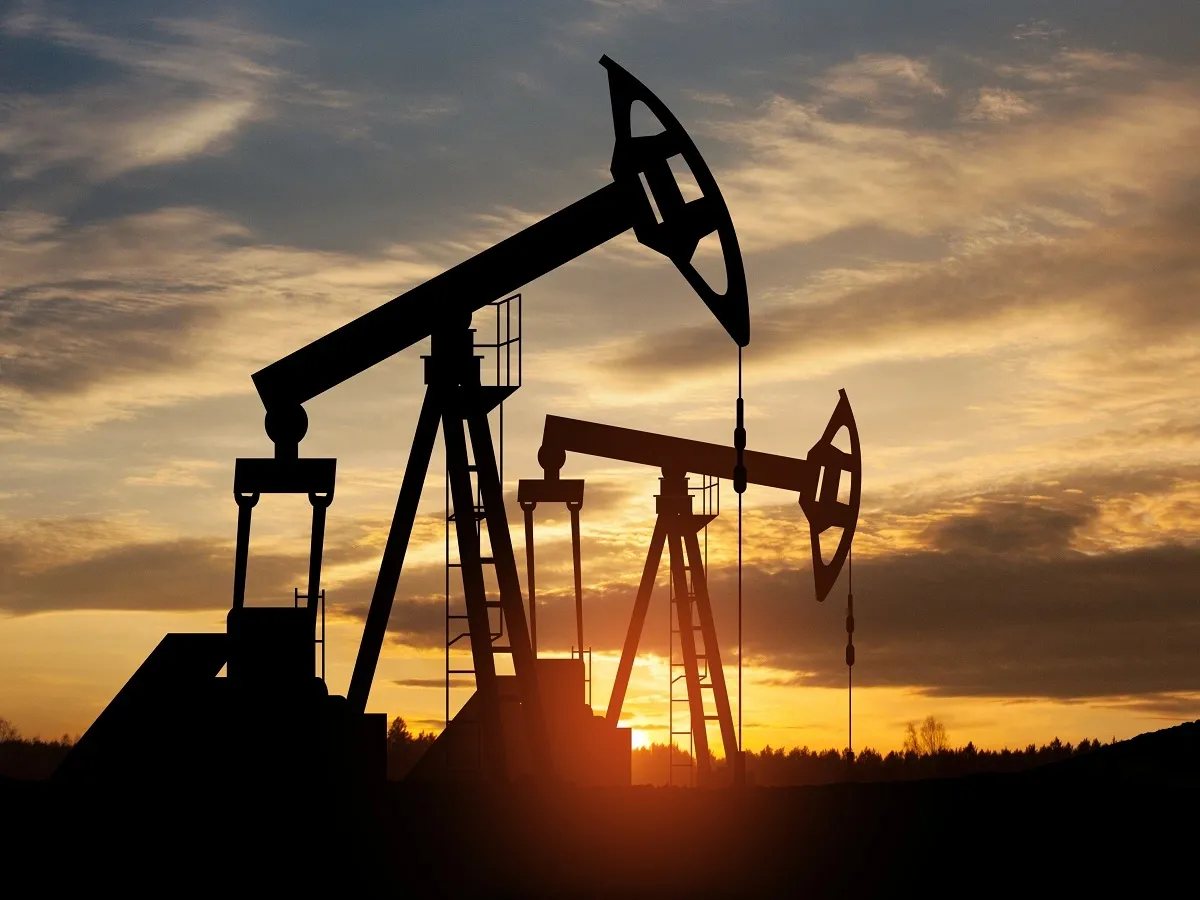Market News
Iran-Israel War: Oil prices hit 5-month high; how worried should India be if Iran shuts down the Strait of Hormuz?
.png)
5 min read | Updated on June 23, 2025, 08:34 IST
SUMMARY
Iran-Israel War: Although Oil Minister Hardeep Singh Puri said that India has enough energy supplies to meet requirements for several weeks, experts note that any blocking or disruption of traffic through the Strait of Hormuz will have a significant global and regional impact, including for India's energy security.

Oil prices edged higher on Thursday to their highest in more than two months. | Image: Shutterstock
Oil prices jumped on Monday to their highest since January as the United States' weekend move to join Israel in attacking Iran's nuclear facilities ignited supply worries.
"Brent crude futures was up $1.92 or 2.49% at $78.93 a barrel as of 0117 GMT. US West Texas Intermediate crude advanced $1.89, or 2.56%, to $75.73," Reuters reported.
Although Oil Minister Hardeep Singh Puri said that India has enough energy supplies to meet requirements for several weeks, experts note that any blocking or disruption of traffic through the Strait of Hormuz will have significant global and regional impact, including for India's energy security.
The shutting down of the narrow passage would have significant global repercussions across energy markets and it will impact India's energy security as well, said Dr Laxman Kumar Behera, Associate Professor at Special Centre for National Security Studies at the Jawaharlal Nehru University.
Echoing similar views, Captain D K Sharma (retd), a former Indian Navy spokesperson who closely follows developments in the Gulf region, too said Iran's threat to block the Strait of Hormuz could lead to significant disruptions in global oil trade.
Any disruption in shipping traffic could impact insurance premiums, causing costlier rerouting of oil shipments, he said.
"Oil prices are expected to surge due to increased tensions in the region, with some analysts predicting prices to reach $80-$90 per barrel or even $100 per barrel if Iran responds with retaliatory measures," Sharma noted.
What Oil Minister says
India, the world's third-largest oil importer and fourth-biggest gas buyer, has enough energy supplies to meet requirements for several weeks and continues to receive supplies from several routes, Oil Minister Hardeep Singh Puri said amid escalating tensions in the globe's biggest energy supply regions.
In a post on X, the minister said the government has been "closely monitoring the evolving geopolitical situation in the Middle East for the past two weeks."
"Under the leadership of PM @narendramodi Ji, we have diversified our supplies in the past few years, and a large volume of our supplies do not come through the Strait of Hormuz now," he said.
The Strait of Hormuz, which Iran is threatening to shut down following US strikes on its nuclear facilities, is an important transit for oil coming from the Middle East.
About 2 million barrels per day (bpd) of crude oil out of India's total import of 5.5 million bpd transits through the narrow waterway. However, India has diversified sources – from Russia to the US and Brazil – which can readily fill any void.
Russian oil is logistically detached from the Strait of Hormuz, flowing via the Suez Canal, Cape of Good Hope, or Pacific Ocean.
Even the US, West African, and Latin American flows – though costlier – are increasingly viable backup options.
"Our oil marketing companies have supplies for several weeks and continue to receive energy supplies from several routes. We will take all necessary steps to ensure stability of supplies of fuel to our citizens," Puri said.
Global oil prices have jumped to their highest level since January after Israel struck Iran, in a dramatic escalation of tensions in the Middle East.
Rates of the benchmark Brent crude were up more than 10% to $77 a barrel.
India imports more than 85% of its crude oil needs and roughly half of its natural gas requirement. More than 40% of the oil imports and half of the gas imports come from the Middle East.
Despite the spike on Friday, oil prices are still more than 10% lower than where they were at the same point last year. They are also well below the over $100 a barrel rate seen in early 2022 following Russia's invasion of Ukraine.
Russia is India's largest supplier of crude oil, which is refined into fuels like petrol and diesel in refineries.
Qatar is India's biggest supplier of natural gas, which is used to make fertilisers, generate electricity, and turn into CNG to run automobiles and pipe to household kitchens for cooking.
What is the Strait of Hormuz?
The Strait of Hormuz is one of the world’s most critical chokepoints for oil transport. About 20% of global oil consumption passes through it daily — mainly from Saudi Arabia, the UAE, Iraq, Kuwait, and Qatar.
The Strait of Hormuz connects the Persian Gulf to the Arabian Sea and the Indian Ocean. The narrow channel, approximately 21 miles (33 kilometres) wide at the narrowest point, separates Iran (north) from the Arabian Peninsula (south). But shipping lanes in the waterway are even narrower – two miles wide in each direction – making them vulnerable to attacks and threats of being shut down.
In the past, it was the West – chiefly the US and Europe – that stood most exposed to disruption in Persian Gulf energy flows, but today it is China and Asia that would bear the brunt of any closure.
According to the EIA, 82% of the crude oil and condensate exports passing through the Strait of Hormuz in 2022 were destined for Asia, with India, China, Japan, and South Korea accounting for 67% of total flows in 2022 and the first half of 2023.
Related News
About The Author
Next Story



